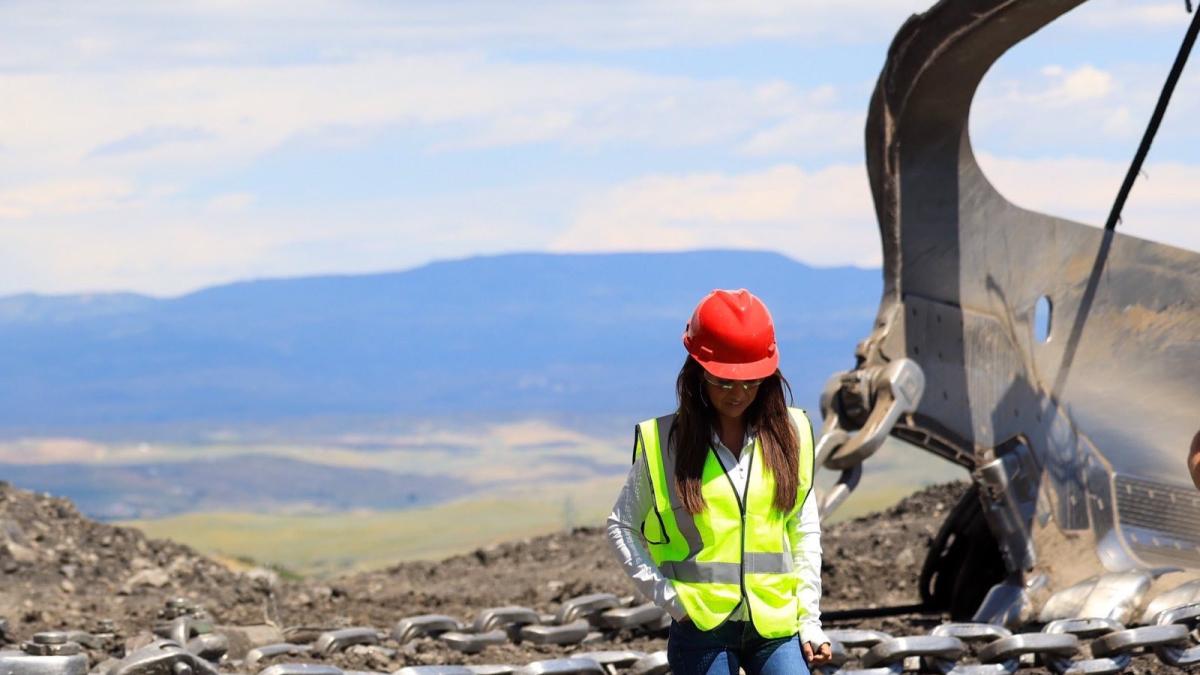Boebert Bill Protecting American Energy Production Passes Resources Committee

Today, the House Committee on Natural Resources passed H.R. 6009, the Restoring American Energy Dominance Act, introduced by Congresswoman Lauren Boebert in October. The bill blocks the Bureau of Land Management’s (BLM’s) proposed Fluid Mineral Leases and Leasing Process rule.
Congresswoman Lauren Boebert (CO-03) said, “Joe Biden and his rogue, unelected bureaucrats have made it crystal clear that they're willing to go to any lengths to dismantle our oil and gas industry, all in favor of pushing Green New Deal initiatives that cost taxpayers hundreds of billions of dollars. The proposed Fluid Mineral Leases and Leasing Process rule is a slap in the face to hard-working Americans already dealing with record-high gas prices. With the wars happening in the Middle East and Europe, and OPEC significantly lowering oil production, we can’t rely on foreign nations for America’s energy needs. The United States makes the cleanest energy in the world, and we should be producing it right here in America.”
Chairmen of the House Natural Resources Committee, Congressman Bruce Westerman (AR-4) said, “Since day one, the Biden administration has waged war on American energy. President Biden repeatedly uses federal agencies, like the Bureau of Land Management, to kneecap American producers to keep them from tapping into our nation’s vast resources. H.R. 6009 is an essential tool bill that will prevent unelected bureaucrats from leaving America dependent on foreign adversaries to meet our energy needs. Representative Boebert has been a leader on the committee fighting for conservation of our resources, and I look forward to continuing to work with her to get this bill through the legislative process.”
Mallori Miller, Vice President of Government Relations for the Independent Petroleum Association of America (IPAA) said, “IPAA is pleased to see Rep. Boebert's bill pass out of Committee. The BLM rule that this legislation aims to prevent would have devastating impacts to independent producers who operate on federal lands. The BLM acted hastily to cobble this rule together and we applaud Rep. Boebert for her attempt to claw back the carelessness.”
Garfield County Commissioner Tom Jankovsky said, “Garfield County, CO is home to the Piceance Basin, which has the second largest natural gas reserves in the U.S. I appreciate Rep. Boebert’s attention to Oil & Gas drilling on federal lands. The natural gas reserves from our region are an important resource for our country and geopolitically.”
Otero County Commissioner Tim Knabenshue said, “I believe this is important legislation to try and re-establish the US as the dominant nation in energy production. I believe that all types of energy coal, solar, wind, nuclear, and electric, should be safely explored and encouraged. Thank you, Rep. Boebert.”
Background:
Today marked a significant stride in the legislative process as Congresswoman Lauren Boebert’s Restoring American Energy Dominance Act successfully passed the House Committee on Natural Resources.
Joe Biden's relentless assault on American energy production has resulted in the loss of good-paying energy jobs, a surge in record-high gas prices, and a stifling effect on economic growth. The proposed Fluid Mineral Leases and Leasing Process Rule would only exacerbate the existing damage by imposing additional burdensome costs and regulations on energy producers already grappling with the repercussions of this administration's assault on American energy.
Congresswoman Boebert introduced this key piece of legislation in October to counter the Biden administration’s efforts to destroy the oil and gas industry. Shortly after its introduction, the House Natural Resources Committee held an important hearing on the bill.
Additional Background Courtesy of House Committee on Natural Resources:
On July 24, 2023, the BLM issued a proposed rule titled Fluid Mineral Leases and Leasing Process. This mandate aims to formally implement provisions from the partisan Inflation Reduction Act (IRA), which not only increased the royalty rate for production on federal lands but also introduced new fees for producers.
While the proposed rule codifies aspects of the IRA, it also introduces significant, non-statutory changes to the BLM’s onshore leasing program. Specifically, the mandate substantially raises bonding levels for production on federal lands even though there are only 37 orphaned wells on such lands. The increased bonding fee requirements disproportionately affect smaller producers who cannot afford to operate in the surety market. These additional fees will ultimately harm returns and reduce revenues for state and local governments by discouraging development on federal lands.
The rule, in particular, suggests discontinuing nationwide bonding and raising the minimum bond amounts for individual lease bonds and statewide lease bonds. The proposed increases are substantial, elevating the amounts from $10,000 to $150,000 for individual lease bonds and from $25,000 to $500,000 for statewide lease bonds. This notable escalation poses a threat by tying up capital that would otherwise be reinvested in production. Such a move is difficult to justify, especially considering the limited presence of orphaned oil and gas wells on BLM-managed lands, numbering only 37. Moreover, over the past decade, the BLM has utilized bonds to plug wells on federal lands merely 40 times.
Additionally, the proposed rule introduces “preference criteria” in federal leasing, which could be devastating for future production on public lands. This is problematic if BLM field offices avoid leasing in all areas with endangered or threatened species, critical habitats, or nearby recreation areas. The proposed mandate could greatly limit leasing on federal lands under those criteria, contradicting the multiple-use mandate established in the Federal Land Policy and Management Act.
Click here to read the full bill.
